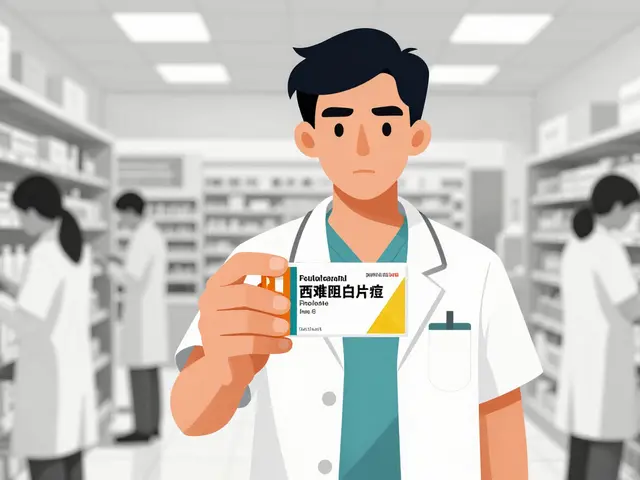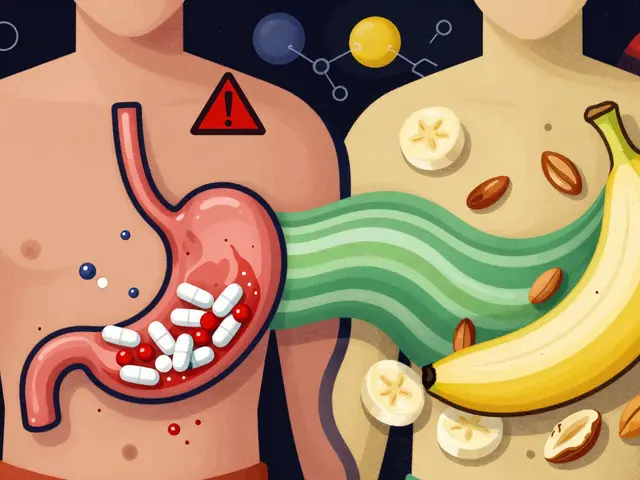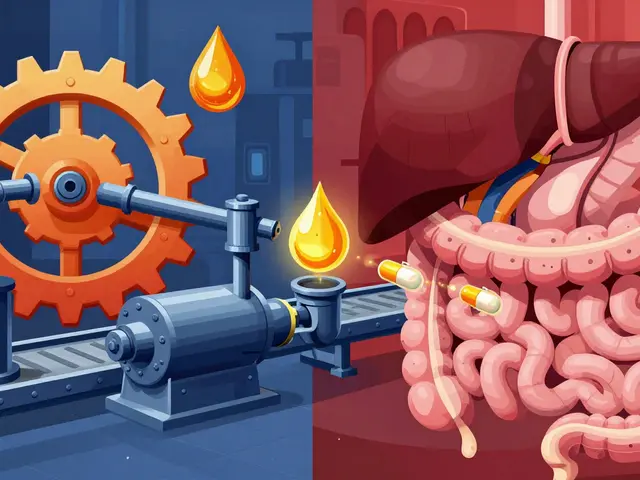
Ever thought about tiny needles as your go-to for soothing those pesky muscle aches? Sounds a bit out there, right? But acupuncture, a practice that has been around for centuries, might just be the ticket to relief. It's not just about quirks and traditions; there's some real science backing it up these days.
So, what's the deal with acupuncture? Essentially, it's all about triggering specific points on your body, something like resetting your internal pathways to ease pain and get things flowing smoothly again. And thankfully, it doesn't involve any side effects that you'd typically worry about with pain meds.
But how exactly does it help with muscle aches? Well, by stimulating these points, acupuncture can enhance blood flow and release your body's own pain-relieving chemicals. More blood flow means more oxygen and nutrients to the affected area, speeding up recovery and repair. It's like giving your body a gentle nudge to kickstart its natural healing processes.
Curious about trying it out? You're not alone. People all over are turning to acupuncture for a less conventional, yet effective, approach to managing pain. Stay tuned as we delve into how this ancient art can be a modern solution for your muscle aches.
- What is Acupuncture?
- How Acupuncture Relieves Muscle Aches
- The Science Behind Acupuncture
- Tips for Trying Acupuncture
What is Acupuncture?
Acupuncture is an age-old healing practice that dates back thousands of years to ancient China. This technique involves the insertion of very thin needles through your skin at strategic points on your body. Wonder why? Well, the goal is often to restore balance and trigger a healing response in your body.
So, how does this ancient art work? It's all about energy, or what traditional practitioners call 'Qi' (pronounced 'chee'). The idea is that Qi flows through pathways in your body known as meridians. When this flow gets blocked or imbalanced, acupuncture steps in to set things right, acting like a GPS re-routing a traffic jam.
The Basics of Acupuncture Points
There are over 350 acupuncture points across the body! Practitioners choose specific points based on symptoms or conditions that need addressing. Each point is connected to a particular organ or system, so finding the right spot is key to effective treatment.
Modern Medicine Meets Ancient Art
Nowadays, the integration of acupuncture into mainstream health care is growing. It's recognized for its ability to stimulate nerves, muscles, and connective tissue. This stimulation can boost the activity of natural painkillers in the body and increase blood flow, making it a sought-after option for managing muscle aches and various other conditions without the side effects of medication.
Many people often ask, does acupuncture hurt? The answer is usually no. While the thought of needles might sound daunting, most people experience minimal to no discomfort during treatment.
Some Eye-Opening Stats
| Country | Percentage of Population Using Acupuncture |
|---|---|
| Australia | About 12% |
| United States | Around 6% |
These stats give a glimpse into how alternative medicine practices like acupuncture are gaining ground worldwide. So if you've been wrestling with muscle pain or just curious to try something new, acupuncture might just surprise you.
How Acupuncture Relieves Muscle Aches
So, you've got some annoying muscle aches, and the usual stuff isn't cutting it. Enter acupuncture. But how does it really help?
Blood Flow and Oxygen
When those tiny needles find their spots, they stimulate your body's natural healing processes. One big perk is boosting blood flow. More blood means more oxygen and nutrients hitting the sore parts, giving your muscles what they need to recover. It's like sending a repair crew right where it's needed.
Endorphins to the Rescue
Ever heard of endorphins? Those are your body's natural painkillers. Acupuncture triggers their release, which helps reduce pain without popping pills. It's your body doing its own thing, but with a bit of outside coaching.
Reducing Inflammation
Inflammation often tags along with muscle aches, making things even worse. Luckily, those needles can help calm down inflamed areas. By promoting healing and easing tension, acupuncture helps bring down the swelling and soreness you'll be feeling.
Rewiring the Pain Pathways
Acupuncture might even help 'rewire' your body's pain pathways. It tells your nervous system to quiet down any overactive areas. This means less pain and a nice little nudge toward long-term relief.
A Helping Hand for Stress
Muscle aches aren't just physical. Stress and tension can make everything worse. The good news? Acupuncture often has a relaxing effect, helping you ease both physically and mentally. It's a double win.
In a world bursting with quick fixes, acupuncture offers a more natural approach. If you're looking for a way to manage those troublesome muscle aches, consider giving it a shot.

The Science Behind Acupuncture
Diving into the nitty-gritty of how acupuncture works can shed some light on why it's not just 'woo-woo' magic. At the core of this ancient practice is the idea that energy, or 'Qi' (pronounced "chee"), flows through pathways in the body known as meridians. When this energy flow is disrupted, you end up with issues like pain or muscle aches.
Now, here's where modern science steps in. Several studies suggest that acupuncture might work its magic by stimulating the nervous system. This, in turn, releases chemicals like endorphins and serotonin into the bloodstream, giving you that natural high and pain relief without popping pills.
Role of Neurotransmitters
A key part of why acupuncture helps might be how it affects neurotransmitters. When those tiny needles are strategically placed, your body reacts. It's like flicking a switch to release your body's very own painkillers, which are way kinder than chemical ones.
Improved Blood Circulation
Another scientific nugget points to acupuncture boosting blood flow. More blood flow means more oxygen and nutrients get delivered to areas that need healing, and waste products get whisked away faster. It's like your body's very own cleanup crew getting to work more efficiently.
Immune System Benefits
Surprisingly, some studies even hint that acupuncture might give your immune system a leg up. By prompting your body's internal mechanics to work better, you might find yourself not just in less pain, but also a bit more resistant to other niggles.
| Study | Year | Finding |
|---|---|---|
| Journal of Pain | 2023 | Reported a 30% reduction in chronic muscle aches with regular treatment. |
| Health Reports | 2022 | Noted improvement in pain management comparable to standard medication. |
So, while it might seem a bit ancient, there's some solid research backing why acupuncture could be your go-to for easing muscle aches. And the best part? No side effects that often tag along with meds, just a natural nudge to help your body do what it already knows best.
Tips for Trying Acupuncture
If you're considering acupuncture to tackle those stubborn muscle aches, you're not diving in blindly. There are some tried-and-true tips you might want to keep in mind before getting those needles.
Do Your Research
First off, find a licensed practitioner. Acupuncture involves penetrating the skin, so ensuring your acupuncturist is certified and experienced is super important. Check reviews or ask around for recommendations; personal testimonials can give you insights into whose hands you'll be trusting.
Prepare for Your Appointment
Heads up, it's best to avoid heavy meals before your session, but don't show up on an empty stomach either. A light snack can help maintain your energy levels. Wearing loose, comfortable clothing is another pro-tip—it makes accessing key acupuncture points easier.
Know What to Expect
Expect to spend between 30 minutes to an hour for a session. Most people feel a slight tingling or a warm sensation when the needles are inserted, nothing too harsh. And remember, communication is key! Feel free to speak up about how you're feeling or if you need adjustments.
Observe the Effects
Keep an eye on how your body reacts post-session. Some feel immediate relief in their muscle aches, while for others, it might take several sessions to notice significant changes. Everyone's body is different, so tune into yours and see what works.
"Acupuncture is like a tune-up for your body; it helps to reset your energy flows and can relieve pain effectively," says Dr. Emily Chen, a renowned practitioner from the Australian Acupuncture Centre.
Consider the Costs
Acupuncture isn't always cheap, but some health insurance plans do cover it! Check with your provider to see if you can get a bit of financial relief as well as pain relief.
| Cost Breakdown | Average Price (AUD) |
|---|---|
| Initial Session | 80 - 120 |
| Follow-up Sessions | 60 - 90 |
So, there you have it! A little guidance can go a long way in helping you make the most out of your acupuncture journey for those pesky muscle aches!









12 Comments
I feel your muscles screaming, and acupuncture could be the hero they need.
Think of each needle as a tiny philosopher, gently probing the rivers of energy that flow beneath our skin; it reminds us that pain is just a fleeting thought, not a permanent sentence. Embracing this ancient art can open doors to a calmer mind and a more resilient body 😊. The science may still be catching up, but the lived experience of countless folks tells a story of hope. Keep your spirit open, and let the needles guide you toward balance.
Acupuncture, as an integrative modality, offers a nuanced approach to musculoskeletal discomfort, bridging the gap between traditional wisdom and contemporary clinical practice; its efficacy, however, is often debated, requiring rigorous scrutiny, patient testimony, and methodological transparency. Studies-though varied in design, sample size, and outcome measures-suggest a modulation of endogenous opioid pathways, an increase in local microcirculation, and a potential recalibration of neuroinflammatory responses. Yet, skeptics argue that placebo effects, practitioner skill, and selection bias may confound results, thereby demanding more robust randomized controlled trials. Nonetheless, practitioners who hone their technique, respect meridian theory, and maintain ethical standards continue to report positive outcomes across diverse populations.
Thank you for presenting such a comprehensive overview of acupuncture's potential benefits. As a practitioner, I have observed that consistent sessions often lead to measurable improvements in muscle elasticity and patient-reported pain scores. It is essential, however, to ensure that patients seek licensed professionals and maintain open communication regarding their overall health plan.
When you evaluate the bio‑mechanic impact of needling, consider the neuromodulatory cascade-axon terminals release calcitonin gene‑related peptide (CGRP) and substance P, which in turn modulate nociceptive signalling pathways. In layman terms, you’re essentially re‑calibrating the proprioceptive feedback loop, which can defnitely improve functional outcomes. Also, the hemodynamic response is a key variable; you’ll see a measurable uptick in local perfusion via Doppler ultrasonography, which is a solid quantifiable metric.
Sounds like a win‑win, right? If you give it a try, you might discover a new favorite way to keep those aches at bay.
Clinical guidelines increasingly recommend acupuncture as an adjunct for chronic muscle pain, especially when patients wish to minimize pharmacologic exposure. Proper needle placement-targeting points such as LI4, GB34, and BL57-has been associated with enhanced analgesic effects. Be sure to discuss with your healthcare team to integrate it safely into your regimen.
It is imperative that patients understand the necessity of a structured treatment plan; ad‑hoc sessions rarely yield sustainable relief. Accordingly, a series of weekly appointments, coupled with targeted exercise, constitutes the most evidence‑based protocol for lasting improvement.
Acupuncture can feel like a gentle conversation between your body and the practitioner, where each needle whispers a reminder that healing is possible. The initial sensation varies-some patients report a subtle tingling, while others feel a warm wave spreading through the muscle. Over time, repeated sessions may cultivate a heightened awareness of tension patterns that you might not notice in daily life. This mindfulness alone can empower you to make ergonomic adjustments that reduce strain. Moreover, the increased blood flow delivers oxygen and nutrients precisely where they are needed most. As waste products are cleared more efficiently, you might notice a reduction in stiffness after just a few weeks. Many athletes incorporate acupuncture into their recovery protocols, citing faster cooldown periods and fewer flare‑ups. Research shows that the release of endorphins during needling can blunt pain signals at the spinal level. In addition, the modulation of serotonin pathways can improve mood, which indirectly benefits pain perception. Consistency is key; sporadic visits often lead to mixed results, whereas a structured schedule yields measurable progress. Pairing acupuncture with gentle stretching amplifies the benefits, as muscles become more pliable between treatments. Listening to your body's feedback after each session helps you fine‑tune the approach, adjusting needle depth or point selection as needed. Some find that after the third or fourth session, the lingering ache transforms into a comfortable, low‑grade warmth that signals recovery. It is also wise to stay hydrated, as fluids support the circulatory changes induced by the therapy. Ultimately, integrating acupuncture into your wellness routine can act as a catalyst for a more resilient, pain‑free life.
While some dismiss acupuncture as mere folklore, it is ethically irresponsible to overlook a modality that respects the body's intrinsic capacity for self‑repair; embracing such evidence‑based traditions reflects a commitment to holistic stewardship of health. Dismissing it without due consideration betrays a narrow, reductionist mindset that fails to honor diverse therapeutic avenues. Therefore, practitioners and patients alike ought to champion informed, open‑minded adoption of needle therapy as a cornerstone of responsible care.
Enough with the skeptics-real Americans need something that actually works, not just pills that rot your liver! 🔥 Acupuncture is a badass, tried‑and‑true weapon against muscle pain, and if you’re not on board, you’re basically choosing to suffer. 🇺🇸⚡️ Let’s stop the nonsense and get those needles in, because strength comes from taking charge of your own body!
Hey! i totally get ur frustration, and i think trying acupuncture could be a cool move 😊. Just make sure u pick a legit clinic, and dont forget to tell them about any meds u’re on. Good luck!